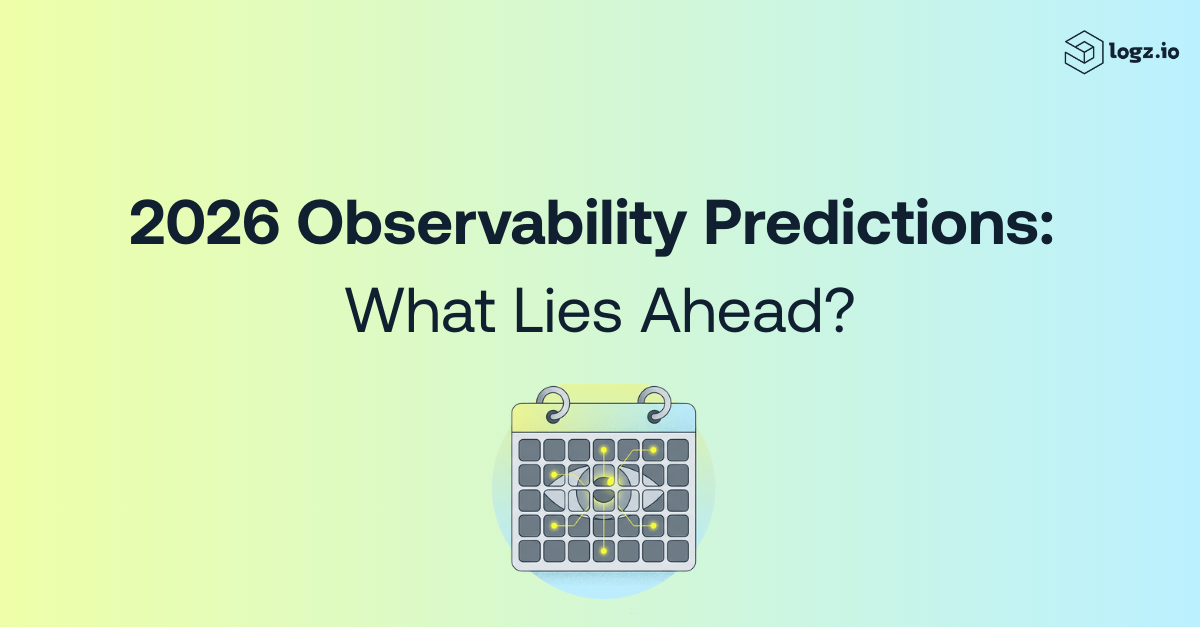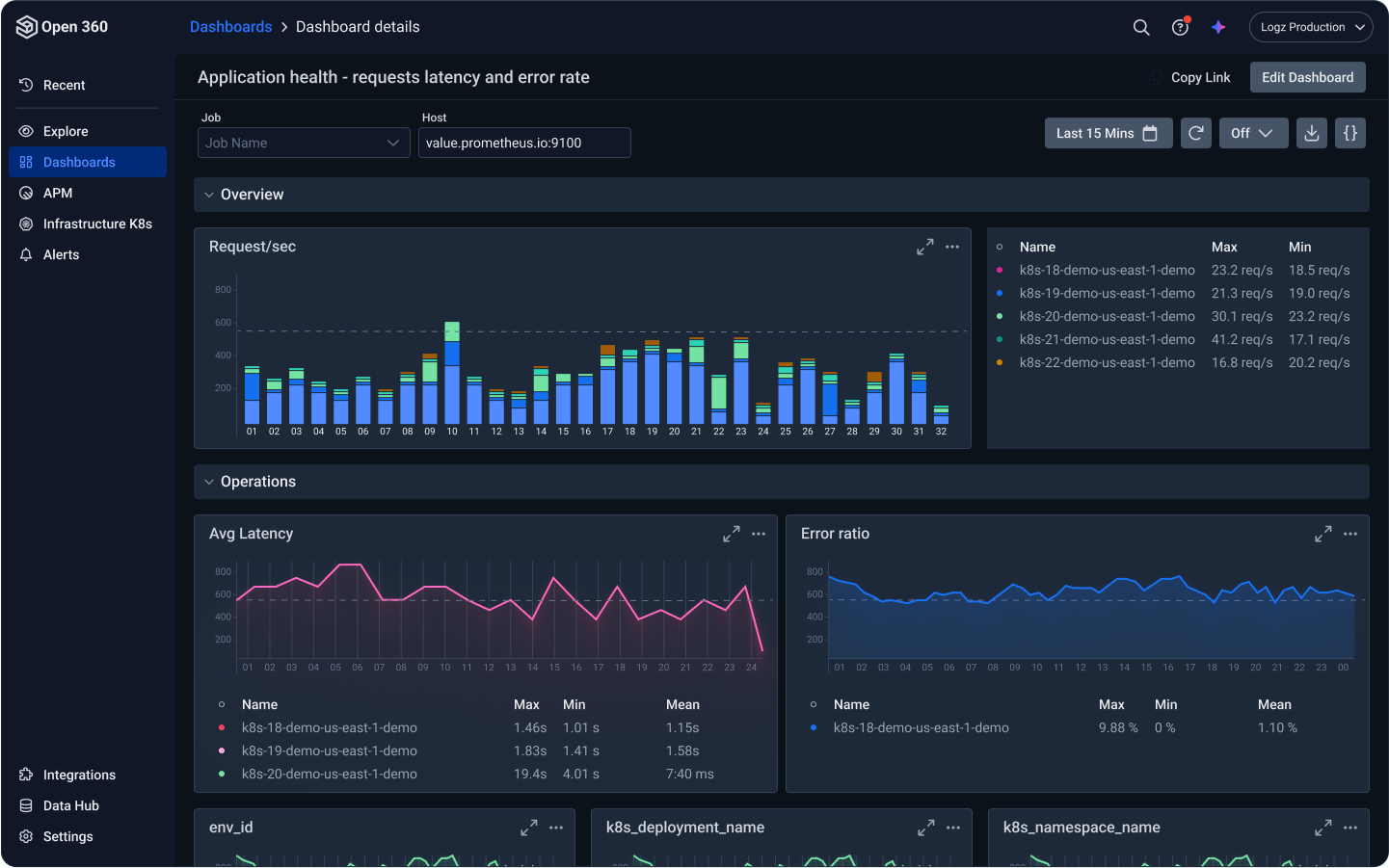
Launching a Podcast in a Global Pandemic: Summarizing First Year of OpenObservability Talks
June 24, 2021

A podcast is born in the midst of a global pandemic
Starting a podcast is one of the coolest things I’ve done in the past year.
And, it’s been a crazy year, at that. The COVID-19 global pandemic drastically changed our lives and our work, it saw us locked down under strict social distancing, and it made it more challenging to interact with each other within the tech community.
As we brainstormed on how to keep the community fires going, we decided to kick off the OpenObservability community with a virtual conference about open source, DevOps, and observability. Then we carried this effort forward with monthly podcast episodes to keep these great chats going regularly, and to get more people involved.
Sitting here reflecting on the last 12 months, the result of this past year’s effort around OpenObservability is truly amazing, having engaged in meaningful conversations covering a diverse range of topics such as log analytics, metric monitoring, distributed tracing, and the continued development of the larger OSS community.
During this time, we got to host the maintainers and contributors of Prometheus, Jaeger, OpenTelemetry and other projects. We were there live to discuss hot news items such as the relicensing of Elasticsearch and the launch of OpenSearch. Some of these episodes skyrocketed in popularity with our listeners, including:
- Distributed Tracing at Uber Scale, with stories on how Uber invented and ran Jaeger,
- All Metrics Are Wrong, Some Are Useful, which exposed some hard truths about metrics, and
- How Much Observability Is Enough, with hands-on advice from an expert practitioner at The Economist.
All of these episodes are available on Anchor, Apple Podcast, Spotify, Google Podcasts, and other popular apps.
We also live-streamed episodes over Twitch and YouTube to encourage listeners to chime in with their questions and comments. This also gave the episodes a nice authentic “unplugged” experience, as it was done in one cut with little to no edits, at all. I’m really curious to learn if people found that approach useful, or if perhaps sticking with a traditional podcast format is preferred. Share your thoughts with us over Twitter @openobserv or email to devrel@logz.io.
All in all, it was a hugely gratifying experience for me, and I’m truly grateful for everyone who appeared on the podcast and tuned in to become a part of the conversation.
So what did we accomplish, topic-wise?
A Year at a Glance
Over the course of the year we covered many topics, driven primarily by the interests of and updates in the open source community itself, including:
Elasticsearch relicensing and forking into OpenSearch
On the January episode, we covered the relicensing of Elasticsearch and Kibana news, hot off the press, and discussed the implications and community response, hosting Tomer Levi following his vocal blog posts on the topic.
On the April episode we discussed OpenSearch, the Elasticsearch and Kibana OSS fork, as it was launched in Beta, hosting Kyle Davis, developer advocate for OpenSearch at AWS.
Prometheus and system metrics monitoring
Prometheus and metrics monitoring was another popular topic this year. We got a lesson on how deceptive metrics can be from Avishai Ish Shalom, as well as tips on application monitoring with prometheus from Jack Neely.
Scaling out Prometheus for long-term metrics and the M3 open source project was also covered on an episode with Matt Schallert.
Distributed Tracing, Jaeger, and OpenTelemetry
Distributed Tracing is the new kid in the observability telemetry block and naturally gained a lot of attention. We heard from Jaeger maintainer and former Uber team member Albert Teoh how Uber invented and used Jaeger open source at scale, and ultimately contributed the project to CNCF. We also took a deep dive into Jaeger and OpenTelemetry with Juraci Paixão Kröhling, a maintainer for Jaeger and OpenTelemetry.
Speaking to Paul Bruce about the community’s evolution of OpenTelemetry, the CNCF’s unified framework for instrumentation collection of telemetry data, was another great episode.
We also ventured into new telemetry signals beyond logs, metrics, and traces in an episode with Bartek Plotka, one of the leaders of Prometheus, Thanos, OpenMetrics, and many other interesting projects.
Observability
Observability was naturally an overarching topic of the podcast including a discussion of how much observability is enough, what level of investment required to achieve it, and how to drive it forward in your company in an episode with Jujhar Singh of The Economist.
Andy Thurai, Senior Analyst at GigaOM, offered another perspective on the observability market landscape and trends. We also discussed using observability for pre-production stages with Michael Haberman of Aspecto.
Completing a full year of this new podcast is greatly satisfying, both personally and professionally. I’m extremely proud of our contributions to the community discussion, and for sharing knowledge around key DevOps, open source, and observability practices.
I’m grateful to my company Logz.io which agreed to sponsor and support this podcast, and in particular I’m thankful for the Logz.io’s Developer Relations team which undertook the execution of this ambitious project, namely: Jonah Kowall, our CTO, and Mike Elsmore. Together we produced amazing things.
New Year, New Ideas
For the upcoming episode I’m excited to be exploring eBPF, a fascinating technology with great potential that I’ve mentioned during previous conversations which will now get a proper episode. We’re specifically going to discuss if we’re getting any closer to zero-instrumentation for Kubernetes observability. For this episode, I’ll host Natalie Serrino from Pixie Labs, which was recently acquired by New Relic and was open sourced under the CNCF.
Now, the big question is “what’s next” as we map out a new season of the podcast. And this is where I’d like to ask for your help!
Have you got an interesting topic that you’d like to share? Would you like to join one of the episodes to talk about your topic of expertise around open source observability and DevOps practices and communities? Go ahead and fill in your proposal here, or submit a CFP on openobservability.io, or just reach out over Twitter @openobserv and or directly to me @horovits.
Please also share your thoughts and suggestions on what we’ve done so far, on what you liked, on what you perhaps liked less, and how we can make the entire effort even better.
Also, check out the OpenObservability.io website as it recently underwent a sizable facelift.
We’re working on more exciting things for the upcoming season, so stay tuned!
And thanks for your continued participation and support.














